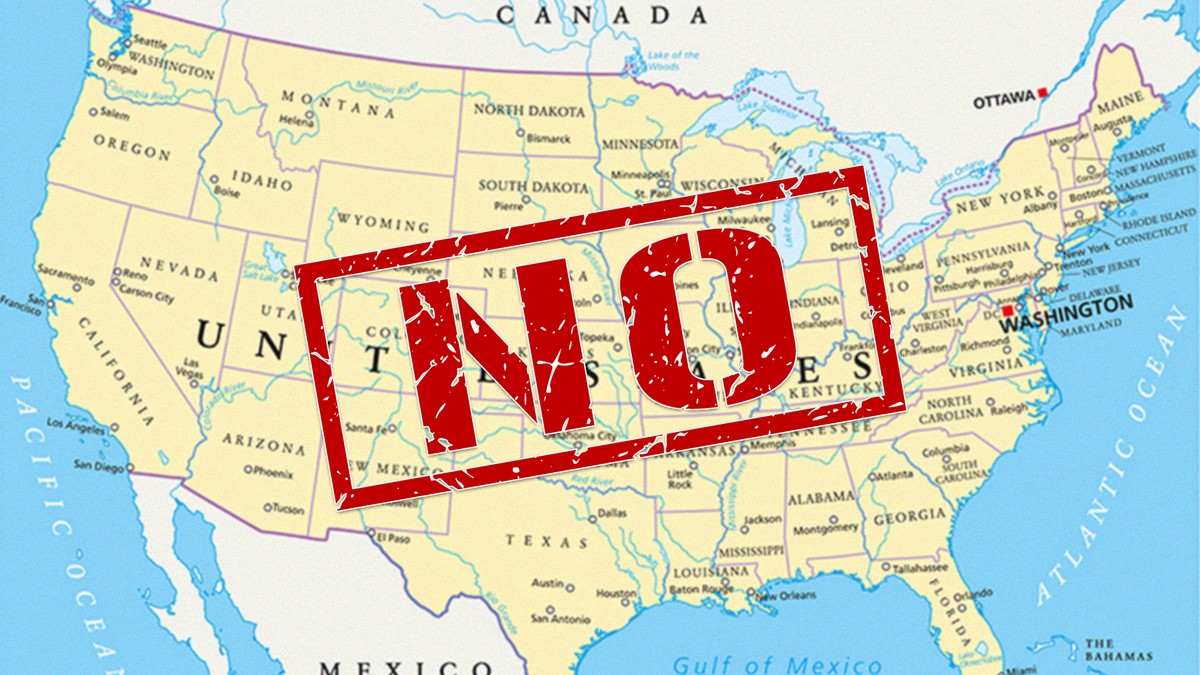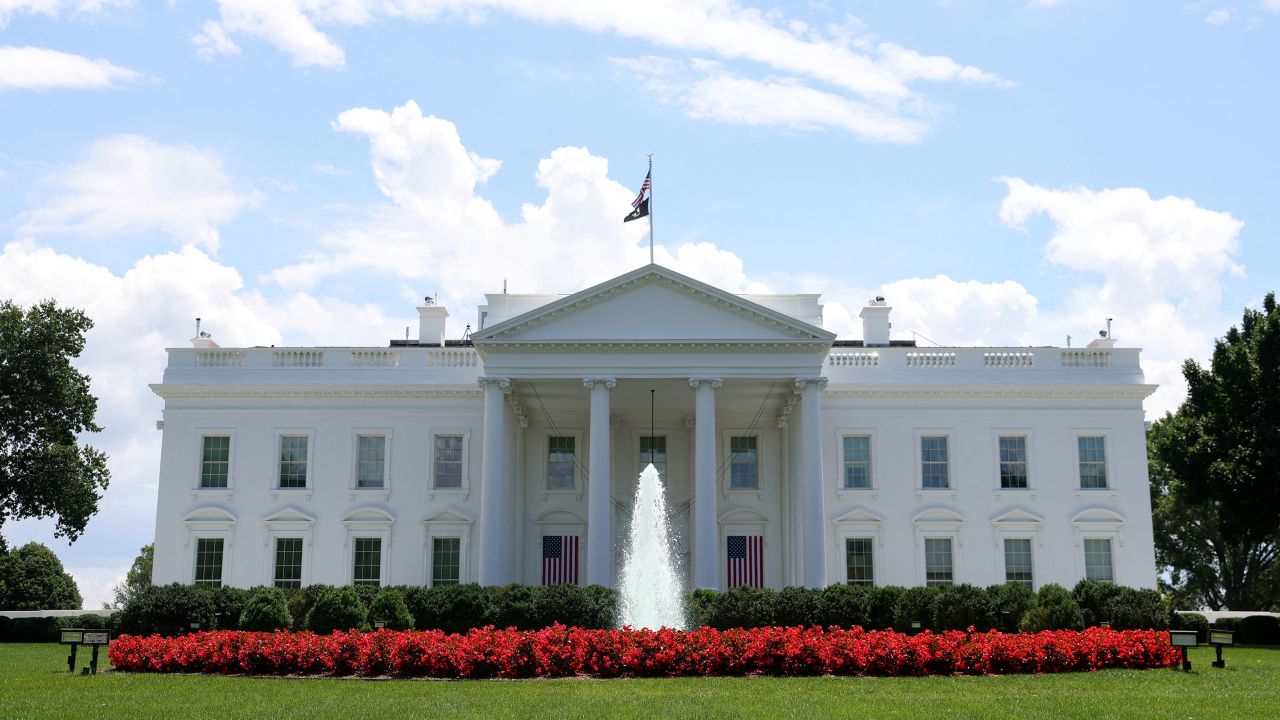Real-Time Analysis: The Economic Effects Of A Canadian Travel Boycott On The US

Table of Contents
Impact on the US Tourism and Hospitality Sector
The US tourism and hospitality sector is heavily reliant on international visitors, with Canadians comprising a significant portion of this market. A Canadian travel boycott would therefore deliver a substantial blow.
Decline in Tourist Revenue
A decrease in Canadian tourism would lead to a significant drop in revenue for numerous businesses.
- Quantifiable Losses: Pre-pandemic data reveals Canadians spent billions annually in the US. A boycott could easily result in losses exceeding billions of dollars, impacting hotels, restaurants, national parks, and other attractions.
- Border State Impacts: States like Washington, New York, and Maine, which border Canada and receive substantial tourism revenue from their northern neighbors, would be disproportionately affected. Tourism-dependent towns and cities along the border would experience severe economic hardship.
- Job Losses: The decline in tourism revenue would inevitably lead to job losses across the hospitality sector, from hotel staff and restaurant workers to tour guides and entertainment professionals.
Reduced Demand for Related Services
The impact extends beyond hotels and restaurants. A Canadian travel boycott would also reduce demand for supporting services.
- Airline Routes: Airlines offering direct flights between Canadian and US cities would see a significant drop in passengers, potentially leading to route cancellations and further job losses within the aviation industry.
- Car Rentals and Transportation: Car rental companies and other transportation services that rely on Canadian tourists would also experience reduced demand, impacting their profitability and employment.
- Entertainment and Shopping: Decreased spending on entertainment venues, theme parks, and shopping malls would further exacerbate the economic downturn. This ripple effect would hit retailers and entertainment providers hard.
Effects on the US Retail Sector
Beyond the tourism sector, a Canadian travel boycott would significantly impact the US retail sector, particularly businesses near the border.
Decreased Sales of Goods and Services
Retailers, especially those near the US-Canada border, rely heavily on Canadian cross-border shoppers.
- Duty-Free and Outlet Malls: Duty-free shops at airports and outlet malls near border crossings would see a dramatic decrease in sales. This impact would disproportionately affect businesses in these specific locations.
- Cross-Border Shopping Patterns: Canadians often travel to the US for specific goods and services, such as lower-priced electronics, clothing, and pharmaceuticals. A boycott would dramatically disrupt these established shopping patterns.
- Retail Employment: The reduced sales would inevitably translate into job losses within the retail sector, affecting both large chains and smaller, independent businesses.
Impact on Duty-Free Sales
The duty-free industry would be particularly hard hit by a Canadian travel boycott.
- Significant Revenue Loss: Duty-free sales to Canadians represent a substantial revenue stream for airports and other retailers. A boycott would cause a significant drop in this revenue.
- Airport Retail Impact: Airports, already challenged by the pandemic, would face further financial strain, impacting not only duty-free shops but also other airport retailers.
- Job Losses in Airport Retail: The downturn in duty-free sales would lead to job losses within airport retail operations.
Broader Economic Ramifications
The consequences of a Canadian travel boycott extend far beyond the tourism and retail sectors, impacting the broader US economy.
Currency Exchange Rate Fluctuations
Reduced Canadian spending in the US could trigger fluctuations in the exchange rate between the US and Canadian dollars.
- Mechanism of Effect: A decrease in demand for US dollars by Canadians could lead to a depreciation of the US dollar against the Canadian dollar.
- Impact on Other Sectors: This exchange rate fluctuation could have wider implications for various sectors of the US economy, influencing imports and exports. It could make US goods more expensive for international buyers, harming export-oriented industries.
Impact on Regional Economies
The impact of a Canadian travel boycott would not be evenly distributed across the US.
- Disproportionate Impact: States heavily reliant on Canadian tourism and cross-border shopping would experience a much more significant economic downturn than other states.
- Regional Economic Dependence: Some regions have developed close economic ties with their Canadian counterparts. A disruption in this cross-border activity could lead to serious economic consequences for these areas.
- Data on Regional Economic Contributions: Analysis of the economic contributions of Canadian tourism to specific regions would help pinpoint areas most vulnerable to a boycott.
Potential Mitigation Strategies
While a Canadian travel boycott poses significant challenges, certain mitigation strategies could lessen the economic impact.
Government Intervention
Government intervention could help soften the blow.
- Tax Breaks and Incentives: Tax breaks for tourism-related businesses and incentives for attracting other international tourists could help offset the losses.
- Marketing Campaigns: Targeted marketing campaigns aimed at attracting tourists from other countries could help diversify the visitor base and reduce dependence on the Canadian market.
- Financial Assistance: Financial aid to struggling businesses in affected regions could help them weather the economic storm.
Industry Adaptation
The tourism and retail sectors need to adapt to a potential decrease in Canadian spending.
- Diversification of Customer Base: Businesses should actively seek to attract a more diverse customer base, reducing reliance on any single market.
- New Marketing Strategies: Development and implementation of innovative marketing strategies targeted at different demographics and international markets could mitigate losses.
- Cost-Cutting Measures: Businesses might need to implement cost-cutting measures to ensure survival and long-term sustainability.
Conclusion
A hypothetical Canadian travel boycott would inflict significant economic damage on the US, impacting numerous sectors beyond just tourism and hospitality. The effects would be felt across different states and industries, with potentially severe consequences for employment and revenue. Understanding the potential consequences of a Canadian travel boycott is crucial for policymakers and businesses alike. Further research and proactive strategies are needed to mitigate the negative economic effects of any disruption in cross-border travel. Analyzing the real-time impact of such a hypothetical Canadian travel boycott remains essential for maintaining economic stability and resilience.

Featured Posts
-
 Hollywood Production Grinds To Halt As Actors And Writers Strike
Apr 28, 2025
Hollywood Production Grinds To Halt As Actors And Writers Strike
Apr 28, 2025 -
 Why Are Gpu Prices Skyrocketing Again
Apr 28, 2025
Why Are Gpu Prices Skyrocketing Again
Apr 28, 2025 -
 Cocaine Found At White House Secret Service Ends Investigation
Apr 28, 2025
Cocaine Found At White House Secret Service Ends Investigation
Apr 28, 2025 -
 Lab Owners Guilty Plea Faked Covid 19 Test Results During Pandemic
Apr 28, 2025
Lab Owners Guilty Plea Faked Covid 19 Test Results During Pandemic
Apr 28, 2025 -
 Understanding The Recent Surge In Gpu Costs
Apr 28, 2025
Understanding The Recent Surge In Gpu Costs
Apr 28, 2025
Latest Posts
-
 Predicting A Jarren Duran Esque Breakout This Red Sox Outfielder To Watch
Apr 28, 2025
Predicting A Jarren Duran Esque Breakout This Red Sox Outfielder To Watch
Apr 28, 2025 -
 The End Of An Era Orioles Hit Streak And The Announcer Jinx
Apr 28, 2025
The End Of An Era Orioles Hit Streak And The Announcer Jinx
Apr 28, 2025 -
 160 Game Hit Streak Snapped The Orioles Broadcaster Jinx
Apr 28, 2025
160 Game Hit Streak Snapped The Orioles Broadcaster Jinx
Apr 28, 2025 -
 Orioles Announcers Curse Lifted After 160 Game Hit Streak
Apr 28, 2025
Orioles Announcers Curse Lifted After 160 Game Hit Streak
Apr 28, 2025 -
 Orioles Broadcasters Jinx Broken 160 Game Hit Streak Ends
Apr 28, 2025
Orioles Broadcasters Jinx Broken 160 Game Hit Streak Ends
Apr 28, 2025
